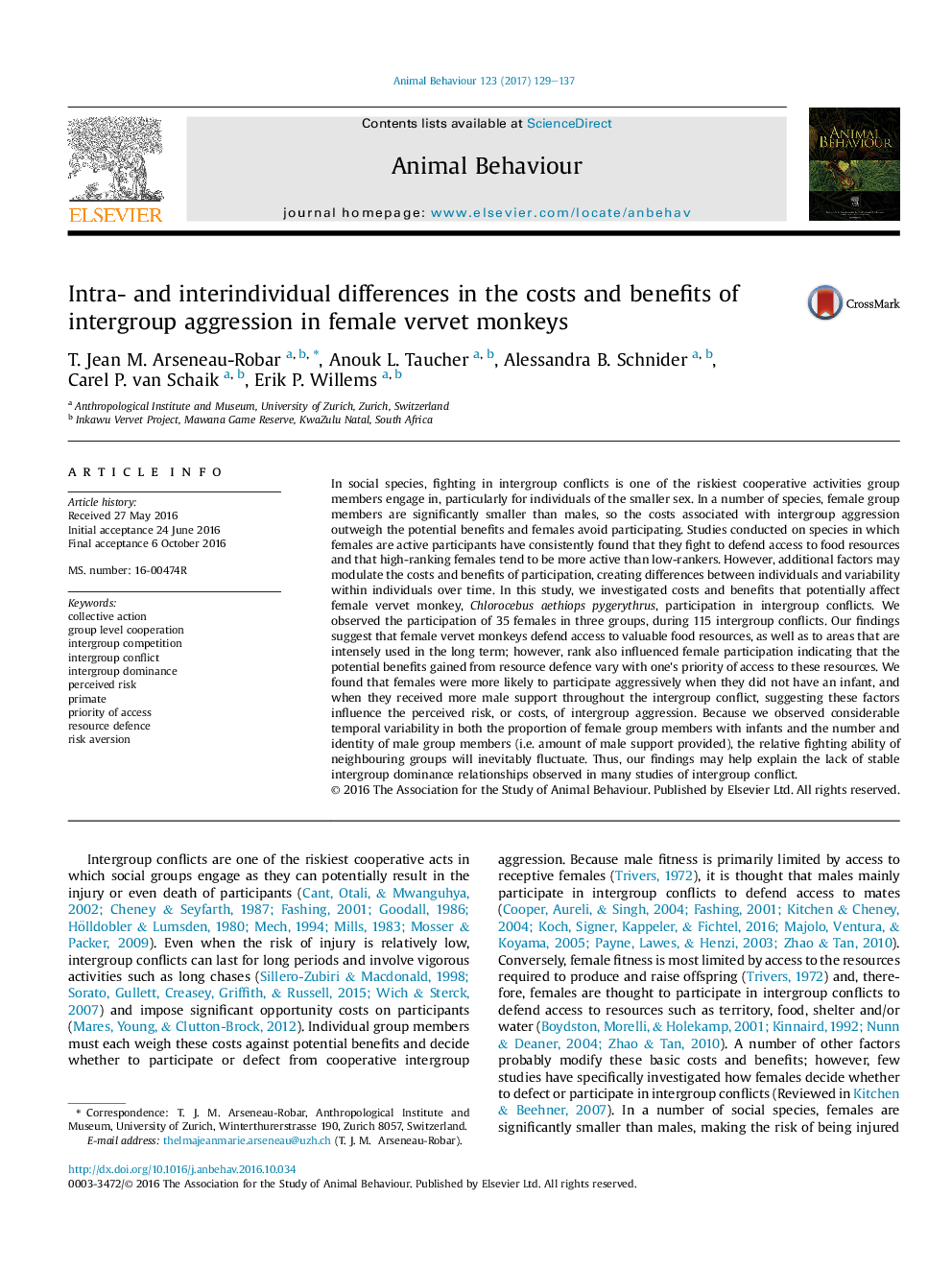ترجمه فارسی عنوان مقاله
تفاوت های درونی و بین فردی در هزینه ها و مزایای تهاجم میان گروهی در میوه های زن وروت
عنوان انگلیسی
Intra- and interindividual differences in the costs and benefits of intergroup aggression in female vervet monkeys
| کد مقاله | سال انتشار | تعداد صفحات مقاله انگلیسی |
|---|---|---|
| 138863 | 2017 | 9 صفحه PDF |
منبع

Publisher : Elsevier - Science Direct (الزویر - ساینس دایرکت)
Journal : Animal Behaviour, Volume 123, January 2017, Pages 129-137
ترجمه کلمات کلیدی
اقدام جمعی، همکاری گروهی، رقابت گروهی تعارض میان گروهی، سلطه میان گروهی، ریسک در نظر گرفته شده، پرایمکت، اولویت دسترسی، دفاع منابع خطر گریزی،
کلمات کلیدی انگلیسی
collective action; group level cooperation; intergroup competition; intergroup conflict; intergroup dominance; perceived risk; primate; priority of access; resource defence; risk aversion;

